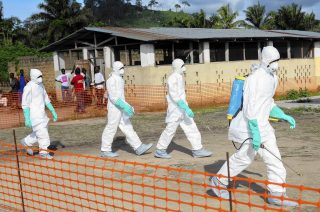There are growing concerns over a suspected Ebola case in Tanzania. On September 10, 2019, the World Health Organization (WHO) through its regular event-based surveillance process was made aware of unofficial reports regarding the death of a person who may have been infected with the Ebola Virus Disease (EVD) in the country’s capital, Dar es Salaam.
The identified contacts of the deceased were unofficially reported to be quarantined in various sites in the country.
Two days later, the health organization was again informed by unofficial sources that a 27-year-old patient suspected to have the virus, was admitted in a hospital in Dar. After this, further information regarding laboratory tests and results were not made known to the WHO.
Nevertheless, as stated under the International Health Regulations (IHR) Articles 9 and 10, the WHO sent a verification request to the National IHR Focal Point (NFP) of Tanzania but did not receive further details on any of these cases from Tanzanian authorities.
WHO spokeswoman Fadela Chaib told reporters that the agency had not received any information after it had requested Tanzanian authorities to assess potential risks from the recent incidents. Tanzania has been accused of withholding information about suspected cases of the deadly disease there.
“What we need to do is to continue communicating with them and provide them with help and expertise. We cannot sanction a country. It is not our mandate,” Chaib said.
While the WHO is convinced that there is a possibility of Ebola cases in Tanzania, Dar has denied it. And the country’s Health Minister, Ummy Mwalimu refuted this allegation.
“The two patients did not have Ebola. There is no Ebola outbreak in Tanzania as we speak, people should not panic,” she said.
People are, however, not convinced by the claims of the Tanzanian government considering the close proximity between the country and eastern African neighbours, DRC and Uganda, where there have been reported cases of Ebola.
The uncertainty of this issue has been followed with the United States (U.S) and the United Kingdom (U.K) issuing warnings to its citizens who travel to Tanzania.
U.S. travellers should “exercise increased caution,” the State Department said in an updated travel advisory.
Likewise, around 75,000 UK nationals visit Tanzania every year, and the country’s tourism sector is likely to bear most of the fallout from this Ebola scandal.
One cannot say for a fact if Ebola has made its way into Tanzania or not, but transparency on an Ebola outbreak is one of the fastest measures to curbing the epidemic. The disease has reportedly killed over 2000 people in the Democratic Republic of Congo (DRC), a country which Tanzania shares a border with.








